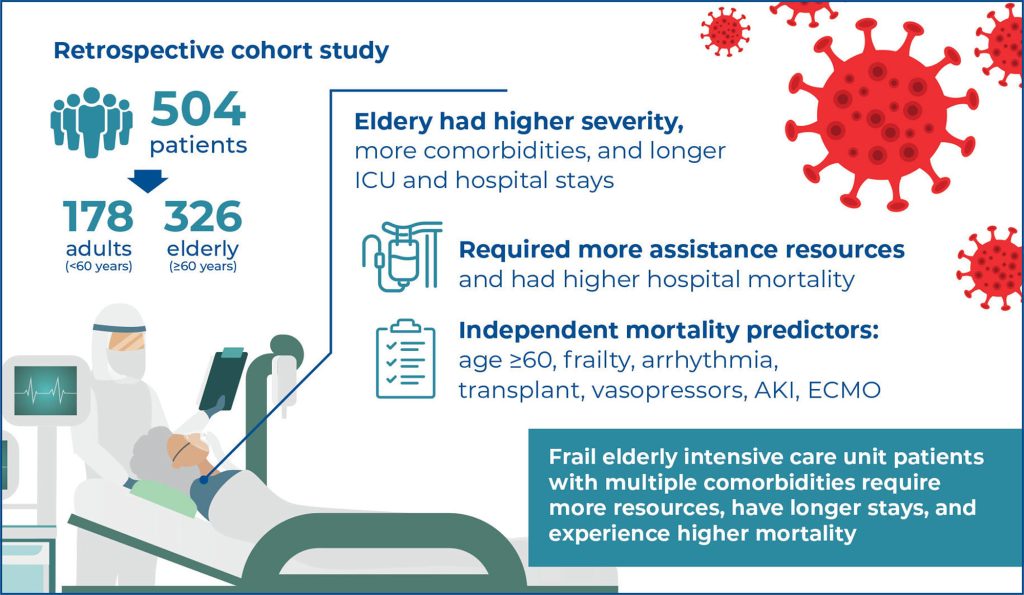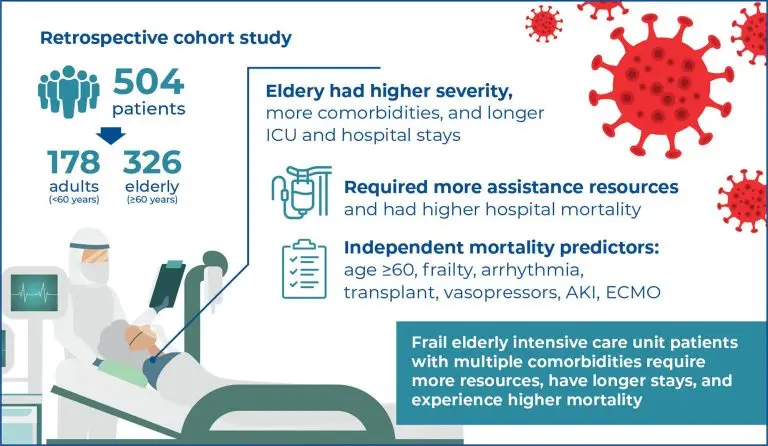einstein (São Paulo). 28/ago/2025;23:eAO1428.
Elderly patients in crisis: unveiling outcomes and management approaches in severe COVID-19 cases – a retrospective analysis from Brazil
DOI: 10.31744/einstein_journal/2025AO1428
Highlights
■ The elderly had higher severity, more comorbidities, and longer intensive care unit and hospital stays than adults.
■ They required more assistance resources and had higher hospital mortality.
■ Independent mortality predictors: age ≥60, frailty, arrhythmia, transplant, acute kidney injury, vasopressors and extracorporeal membrane oxygenation.
ABSTRACT
Objective:
To analyze the sociodemographic and clinical characteristics, comorbidities, therapeutic resources, and mortality rates of elderly patients with COVID-19 admitted to an intensive care unit.
Methods:
This retrospective cohort study included patients admitted to the intensive care unit of a large hospital in São Paulo, Brazil, from March 1, 2020, to March 31, 2021. Patients were categorized as adults (≥18 years) and elderly (≥60 years).
Results:
Of the 504 patients, 326 (64.7%) were elderly. Compared to the adults, elderly patients had significantly higher Simplified Acute Physiology Score 3 and Sequential Organ Failure Assessment scores on admission (p<0.001). They also had a greater prevalence of comorbidities, as reflected by a higher Charlson Comorbidity Index (p<0.001) and were frailer according to the Modified Frailty Index (p<0.001). The elderly group had a longer intensive care unit stay, with an average of 17±19 days and a hospital stay of 40±39 days, compared to the adults who had an average intensive care unit stay of 14±16 days and a hospital stay of 28±25 days. Hospital mortality was significantly higher among elderly patients (37.7%) than among adults (12.4%) (p<0.001), especially in those who developed acute kidney injury and required vasopressors and extracorporeal membrane oxygenation. The other independent risk factors for mortality were frailty, arrhythmias, and prior organ transplantation.
Conclusion:
Frail elderly intensive care unit patients with multiple comorbidities require more resources, have longer hospital stays, and face higher mortality rates. Early interventions targeting this population could improve survival.
[…]
Palavras-chave: Aged; COVID-19; Acute kidney injury; Length of stay; Mortality; Hospital mortality; Critical care outcomes; Intensive care units
101



